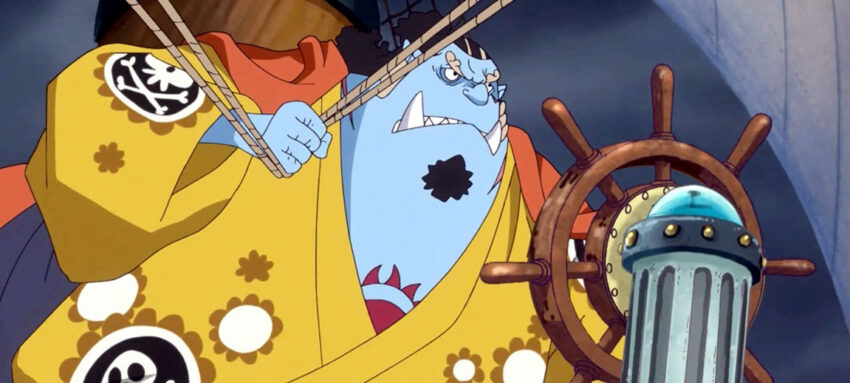
The Helmsman?
Once there was a time when I believed in “free will.” I truly thought that the course of my life was the sum total of decisions, freely made. Furthermore, self recrimination, or self-congratulation was due because I was the actor, the subject who had decided those courses of action. I was the helmsman-of-my-life, accountable to God for my actions.
Now I remember as if pondering a snapshot of myself in a nearly forgotten collection of old photographs, it is difficult to recall the feeling, the crushing weight of responsibility, the maddening uncertainty entailed in “free will.” Is there ever only a single right course of action? On many occasions one feels conflicted, separate desires/wills for outcomes that are contradictory…
Perhaps you are thinking as you read, “that sounds like a recipe for neurosis.” Yes it was. Especially if God, the ultimate arbiter of right and wrong is part of the scenario. Religion can be a factor in a paralysis of mind, indecision, fear of making a mistake… And more seriously, — self-loathing, a repressed rage at a treadmill of disappointment with one’s own life, at not measuring up despite one’s best effort.
I am grateful that all of that is now receding into the “rear view mirror.” I no longer believe that “free will” is a given, a framework for human decisions. If I have a sensation of willing freely, always the influence of subterranean constraints, — the particular parents who gave me birth, the time and the place of my maturity to adulthood, the genetic makeup factoring into my temperament, etc., etc., are like the current of a great river.
Recrimination or praise is inapt, absurd.
Perhaps gratitude is appropriate, because to exist at all is to be a lottery winner.
Nietzsche wrote about the difference between the discharge of forces, a quantum release of pent up forces and particular decision making.
I have learned to distinguish
the cause of acting
from the cause of acting in a particular way,
in a particular direction,
with a particular goal.
The first kind of cause
is a quantum of dammed-up energy
that js waiting to be used up somehow, for something,
while the second kind is,
compared to this energy, something quite insignificant,
for the most part a little accident
…a match versus a ton of powder.
The usual view is different:
People are accustomed to consider the goal
(purposes, vocations, etc.) as the driving force,
in keeping with a very ancient error;
but it is merely the directing force
–one has mistaken the helmsman for the steam.
And not even always the helmsman,
the directing force.
…that the ship
is following the current
into which it has entered accidentally?
that it “wills” to go that way
because it — must?
that is has a direction, to be sure,
but — no helmsman at all?
–excerpt The Gay Science, Book 5, Section 360 by Friedrich Nietzsche
2 thoughts on “The Helmsman?”
Free will, determinism, cause and effect are all flash point words when it comes to assessing the philosophical nature of our lives. I think we all want to believe in free will, that somehow we have control over our destinies. From Aristotle on, humans have attempted to grasp the notion of how a cause can effect an outcome with regard to human behavior (and within the physical laws that abound in natural phenomenon as well).
I know that when pressed on this topic I always come around to the notion that even if free will does not exist and that we are all the products of our genetics, chemistry, and environment, then it’s still great to be along for the ride. As you suggested, it’s a wonder that we are alive and capable of pondering these issues at all.
From a pragmatic point of view, I see my current health issues as the inevitable outcome of cause and effect. Given enough information, I would have been able to envision this chapter in my life from childhood, in the same way Isaac Asimov’s character, Harry Seldon, was able to predict the future of mankind based on massive psychological analysis.
What is equally bizarre is that the notion of “free will” has roots in religious dogma, stating that we have the choice to accept good or evil into our lives with the ultimate outcome being heaven or hell. And in the same breath, religion tells us that God is omnipotent, knowing everything before it will happen and so we must all be relegated to eternal damnation or life ever-after prior to birth based on God’s wisdom, therefore free will doesn’t exist. Of course this is crazy, but religion in general has never been regarded as founded in rational thought. It’s faith! Faith to accept precepts that are hypocritical resulting in nonsense. Just believe, don’t ask.
Anyway, the bottom line is that free will is indeed an illusion, but our minds will not allow us to accept that fact.
Free will, the indispensable illusion, even for those of us believing to the contrary… I wonder if religion is not a complex of inherited arch types. Humans have a will-to-believe as it is quite impossible to be a language-enabled mammal without a framework for what we think is real. Religion grants us solidarity with our tribe, a palpable sense of belonging to something. We’d rather belong to a law-giving-ultimate-judge than… The Romans apparently were athiests, indifferently religious.